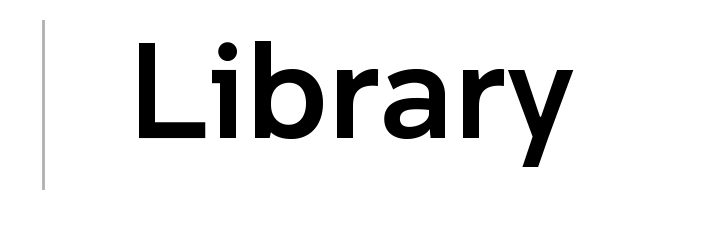UNSW Library Digital Information Skills Framework
The Library Digital Information Skills Framework, aligned with the UNSW Graduate Capabilities, forms the foundation of the Library's teaching and learning support, with the goal of equipping students with lifelong critical information and digital literacy skills.
The framework presents a staged progression of information and digital literacy capabilities - identifying, discovering, evaluating and responsibly using scholarly information - each with defined learning outcomes. Although staged, the outcomes are not stage-dependent; instead, they represent support available to students to meet their individual and collective needs at any point in their academic journey through tailored workshops, digital learning objects, and consultations.
Download the one page guide for the UNSW Library Digital Information Skills Framework (65KB PDF)
- Fundamental stage
- Proficient stage
- Advanced stage
Fundamental stage
Identify
Know what information is needed and how to use it.
- Recognise a need for information based on gaps in knowledge or understanding.
- Distinguish between types of information and resources and their academic uses.
- Identify instruction verbs, key concepts and limiting words in a research question to guide information gathering.
Discover
Search and find information.
- Design basic search strategies.
- Access content in subject areas using Library and UNSW systems and tools (including AI), such as course resource lists and the Library collection.
Evaluate
Assess the credibility of information.
- Recognise that information quality varies and may include bias and misinformation.
- Aware of the quality of information produced by AI.
Responsible use of information
Using other's work.
- Recognise the importance of referencing and attributing other's work, including reference tools like AI when they are used to generate, analyse or provide insights into that work.
Proficient stage
Identify
Know what information is needed and how to use it.
- Determine when sufficient information has been gathered to address gaps in knowledge or understanding.
- Exercise judgment in selecting suitable information sources based on their type, academic use and relevance to the key components of a research question.
Discover
Search and find information.
- Implement targeted search strategies across various platforms to locate relevant information and data, refining them as necessary.
Evaluate
Assess the credibility of information.
- Develop critical judgment in selecting quality information, and use appropriate criteria to evaluate its relevance, currency, reliability and accuracy.
Responsible use of information
Using other's work.
- Apply ethical principles in using the work of others, demonstrating an understanding of copyright, plagiarism and intellectual property.
Advanced stage
Identify
Know what information is needed and how to use it.
- Create and apply original research questions that reflect a comprehensive understanding of the field of information.
Discover
Search and find information.
- Master advanced search techniques across diverse platforms to discover specialised information and datasets, adapting strategies to meet complex research needs.
- Use advanced features on platforms to save searches, results and/or set automated alerts.
Evaluate
Assess the credibility of information.
- Consistently evaluate information sources and justify their quality and appropriateness based on relevant criteria.
Responsible use of information
Using other's work.
- Demonstrate advanced ethical information practices by acknowledging and, when necessary, seeking permission to use others' work.
Acknowledgements
Deakin University Library "Deakin Digital Literacy Framework" (PDF) (CC BY-NC-ND 4.0) No longer available on Deakin University website
November 2024

